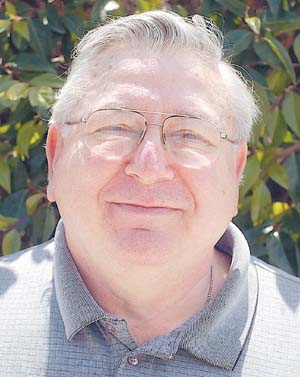No one should be too proud or provincial to adopt the good ideas of others; that’s a key strategy used by most successful people. During this year’s discussions of football coaches, the analysts pointed out the large number of successful coaches that sprang from the Bill Walsh branch of the fraternity. Each successful coach added their own ideas, but the basic principles they learned long ago have not changed.
The same goes for governance: Good government is based on good management. Not everyone will get the same results, individual circumstances and talents vary; however, a Doctorate in Public Policy from Harvard is not required to embrace proven principles. Two critical elements of government are budgeting and spending decisions.
Several days before his recent nomination to lead the CIA, former Whitehouse Chief of Staff Leon Panetta and Thomas McKernan, CEO of the Automobile Club of Southern California, wrote an article for the San Jose Mercury News recommending budget solutions for California. There is no good reason that these recommendations should not apply to local governments. Here are their basic ideas with a few notes of my own.
n “Look to the future. A multiyear budgeting system would focus fiscal choices on long-term implications and discourage short-term solutions that push liabilities and difficult decisions into the future.” Very few significant programs or projects can be completed in a single budget cycle even at the local government level. Funding for projects that require several years to be effective should take a multi-year approach and that includes services such as a gang suppression and prevention programs.
n “Focus on priorities and outcomes. A results-based process for making budget decisions would enable leaders to assess whether to increase, continue or alter policies and programs, rather than letting budgets grow on auto-pilot, regardless of whether services are having a positive impact on the lives of Californians.” In other words, don’t keep doing the same thing and expect the results to change. Again, funding a director for a gang suppression and prevention program is a good example. The reduction in gangs would reduce the burden on public safety and lower the school dropout rate while increasing the school system’s income. We could fund the director position from the county and city public safety and the school board budgets. There is more than one way to spend a buck.
n “Create a culture of accountability. The Legislature does not dedicate adequate time to reviewing whether programs are achieving their goals and what must change for them to improve. Budget decisions should be guided by what programs are trying to achieve and what must change to achieve those goals.” This means we must start measuring outcomes otherwise how are we to know if we are making progress.
n “Pay our own way. Any policy change that increases costs must also contain a provision that identifies where the money will come from, whether new revenue or expenditure reductions elsewhere.” Naturally, we can only do that with our own requirements and resources; unfortunately, unfunded mandates will continue to come from both the federal and state governments. However, significant portions of our spending decisions are our own. Most of the public who criticize taxes and spending do so because they are convinced that they are not getting their money’s worth – and in far too many cases, they are right. The tendency in government is to write off complaints rather make difficult decisions to reduce competing expenditures.
Adopting these fundamental principles would provide a better outcome for local government and a base upon which creative ideas and success can grow.
Marty Richman is a Hollister resident. His column runs Tuesdays in the Free Lance. Reach him at cw*****@***oo.com.








